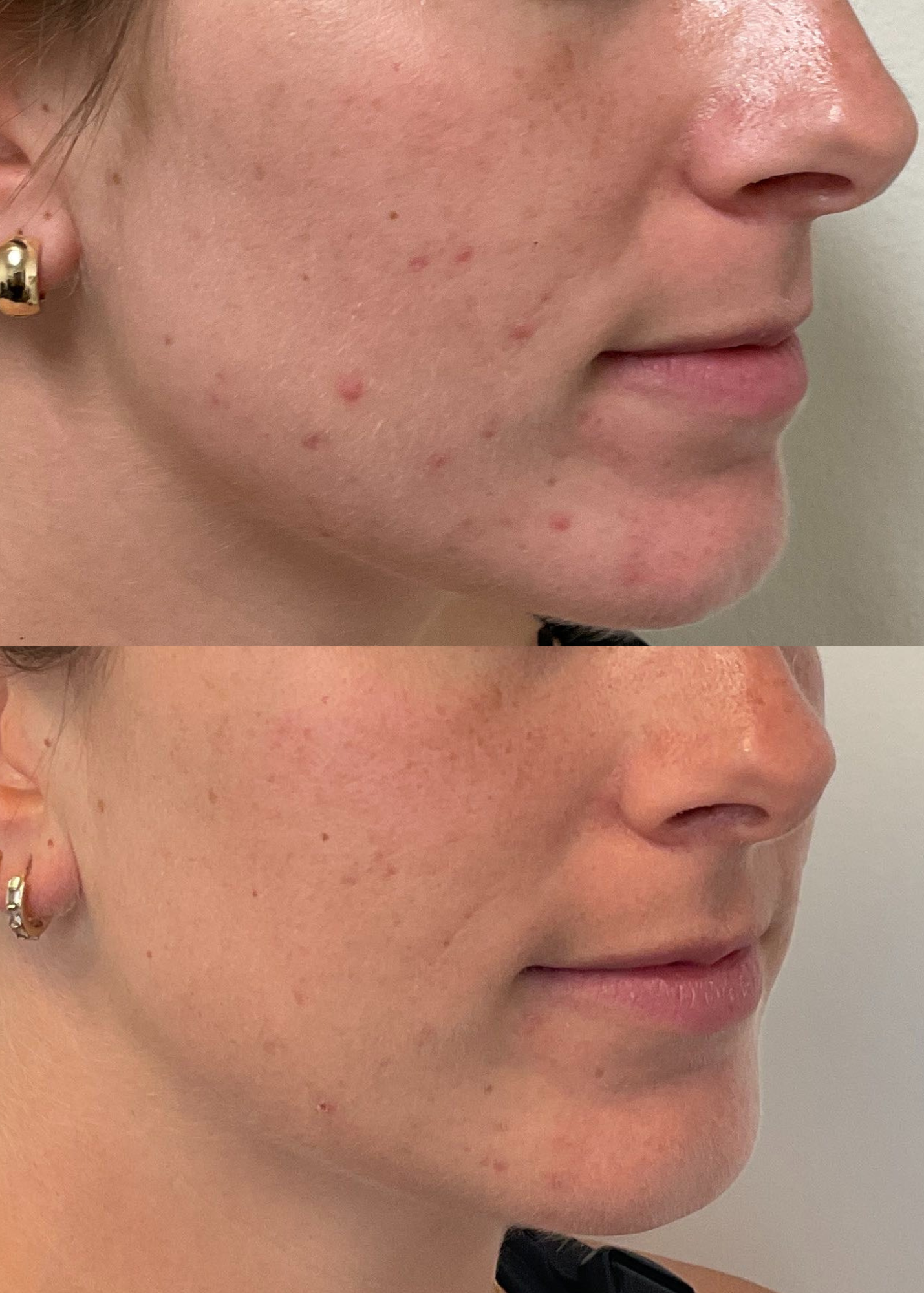Acne is a multifactorial skin condition influenced by various internal and external factors. Understanding these hidden causes can aid in effective management and treatment.
1. Bacteria: Cutibacterium acnes
Cutibacterium acnes (formerly Propionibacterium acnes) is a bacterium that resides in hair follicles and contributes to acne development by promoting inflammation. It thrives in oil rich environment and in clogged pores, leading to the formation of acne lesions.
2. Clogged Pores
The accumulation of dead skin cells and sebum can block hair follicles, creating an environment conducive to bacterial growth and inflammation. This blockage is a primary factor in acne formation.
3. Excess Sebum Production
Overactive sebaceous glands produce excess sebum, an oily substance that can clog pores and promote bacterial proliferation, leading to acne. This is excess sebum production can be due to multiple factors: hormones, diet, genetics.
4. Genetics
Genetic predisposition plays a significant role in acne development. Individuals with a family history of acne are more likely to experience it themselves.
5. Hormonal Fluctuations
Hormonal changes, particularly increased androgens during puberty, menstruation, or stress, can stimulate sebum production and exacerbate acne.
6. Inflammation
Inflammatory responses to clogged pores and bacterial activity contribute to the redness and swelling characteristic of acne lesions.
7. Stress
Stress can trigger hormonal changes that increase sebum production and inflammation, potentially worsening acne.
8. Diet
Certain dietary factors, such as high-glycemic foods and dairy products, have been associated with increased acne severity.
Get Expert Help From a San Francisco Acne Dermatologist
If you're struggling with persistent acne it is best to get a customized treatment plan, book an appointment with Dr. Caren Campbell, a board-certified dermatologist in San Francisco who can work with you to tailor a routine that works for you and your skin's unique needs.
Dr. Campbell offers in-person and virtual consultations. Dr. Caren Campbell is licensed in New York, Arizona, Texas and California and is happy to care for your virtually if you reside outside of the Bay Area. If you reside in the Bay Area, we are happy to care for your in our downtown San Francisco office or virtually at your convenience.
📍Located in Union Square, San Francisco
📞 Call us at 415-839-8118 or Book Online at carencampbellmd.com
References
-
Bhambri S, Del Rosso JQ, Bhambri A. Pathogenesis of Acne Vulgaris: Recent Advances. J Drugs Dermatol. 2009;8(7):615-618.jddonline.com+2jddonline.com+2jddonline.com+2
-
Zaenglein AL, Pathy AL, Schlosser BJ, et al. Guidelines of care for the management of acne vulgaris. J Am Acad Dermatol. 2016;74(5):945-973.e33.jaad.org+1jaad.org+1
-
Kimball AB, Koo J, Yeung J, et al. The Response of Skin Disease to Stress. JAMA Dermatol. 2003;139(7):897-900.jamanetwork.com
-
Bowe WP, Joshi SS, Shalita AR. Diet and acne. J Am Acad Dermatol. 2010;63(1):124-141.
-
Kircik LH. The Sequence of Inflammation, Relevant Biomarkers, and the Pathogenesis of Acne Vulgaris: What Does Recent Research Show? J Drugs Dermatol. 2013;12(12 Suppl):s109-s115.jddonline.com
